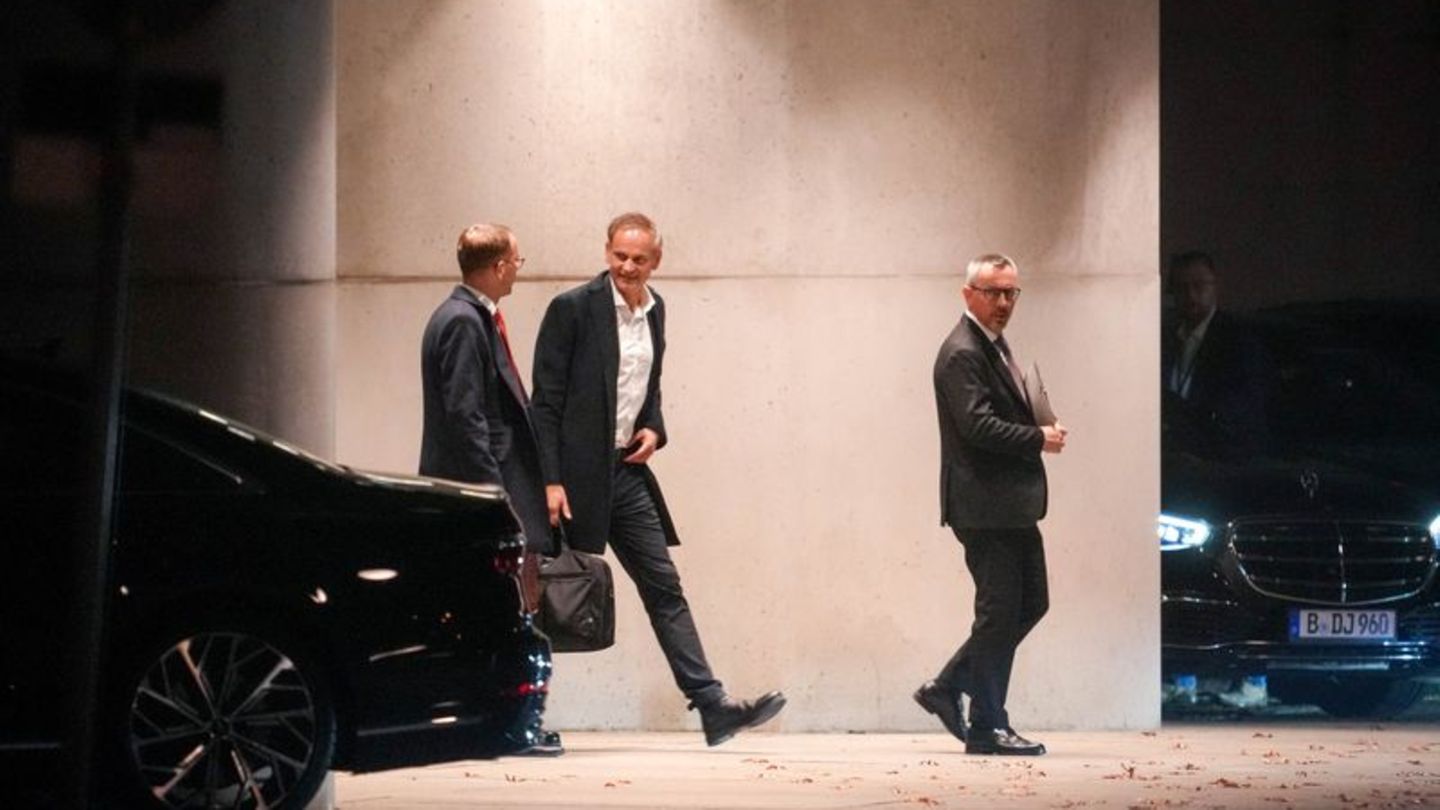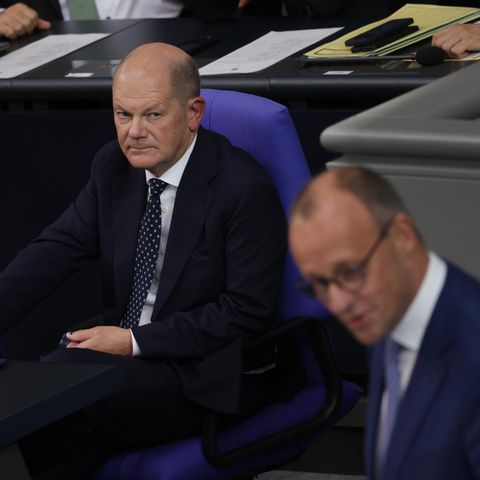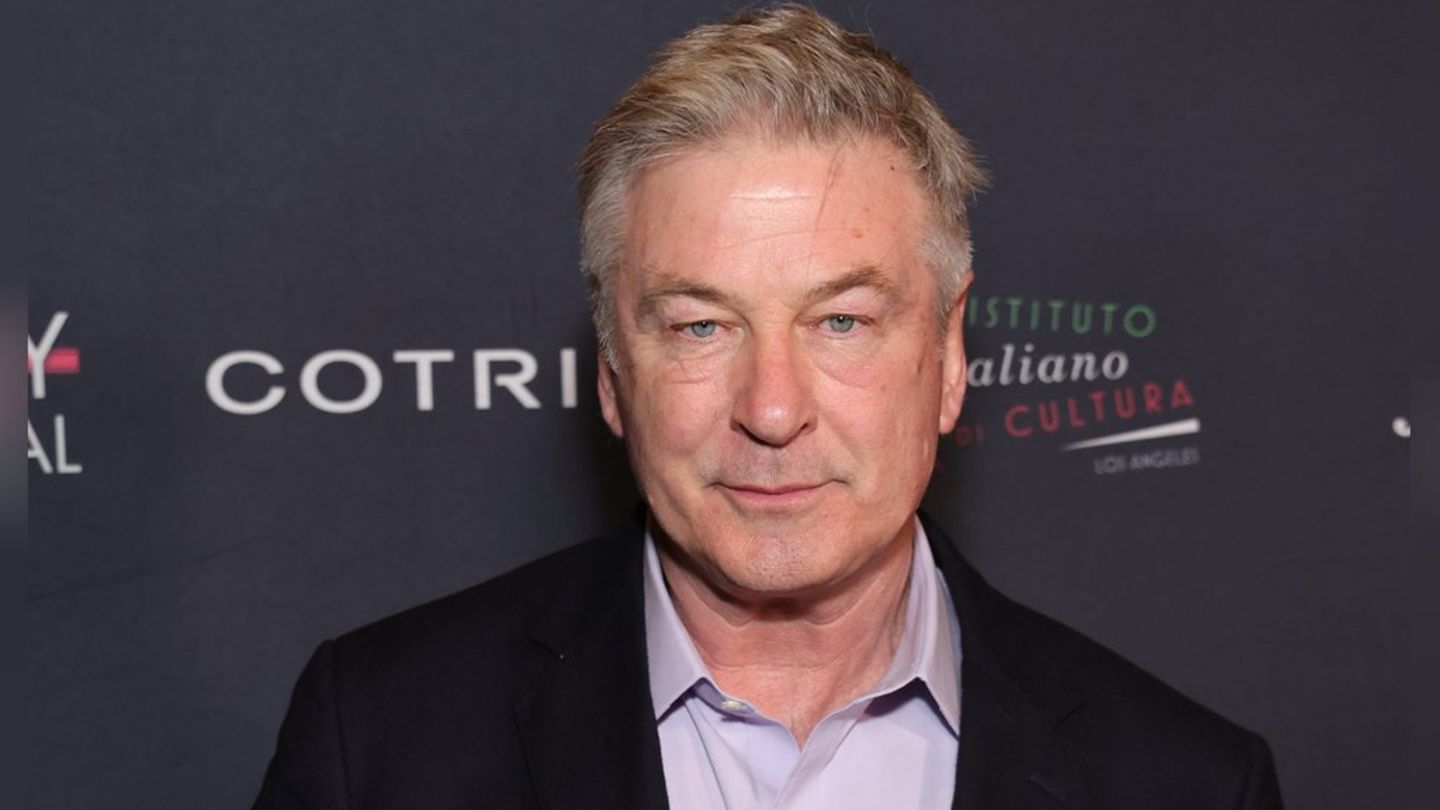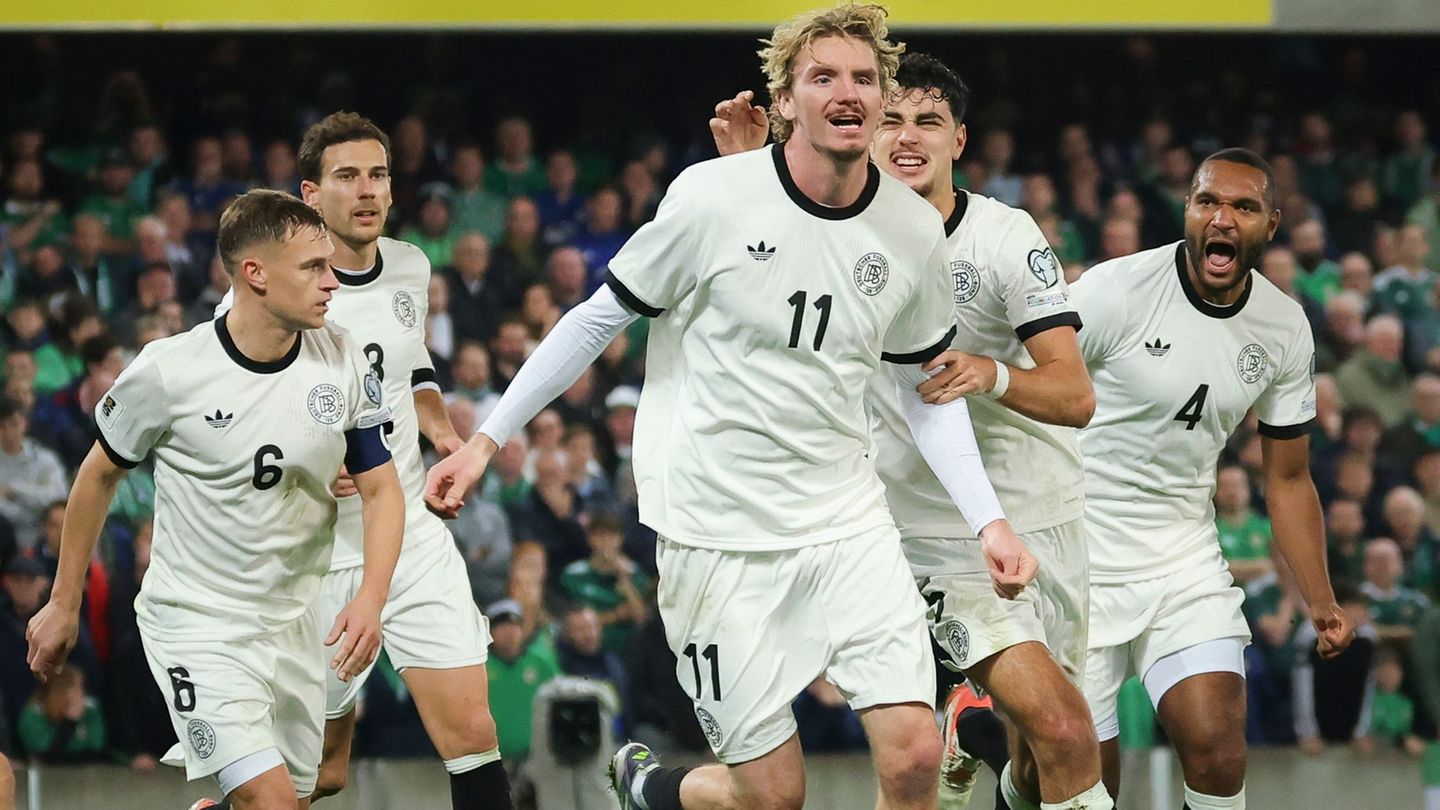Economic policy
Scholz holds out the prospect of a “Pact for Industry” after the summit
Copy the current link
Two separate economic summits by Olaf Scholz and his finance minister have not yet produced any results. However, expectations are then raised further.
After his meeting with business representatives and unions, Chancellor Olaf Scholz (SPD) called for a “pact for industry” to be forged together. “Germany is a strong country that is currently facing major challenges,” he said after the deliberations in the Berlin Chancellery. “Now it’s about tackling it together and strengthening the location with a pact for the industry that includes very concrete measures.”
Scholz had previously discussed ways out of the economic crisis with 13 representatives from industrial associations, unions and selected companies. Government spokesman Steffen Hebestreit announced that another meeting in this group would take place on November 15th.
Lindner calls for joint decisions on direction
Finance Minister Christian Lindner’s FDP had previously organized its own summit, to which medium-sized businesses and trades were also invited. Lindner then called for joint decisions by the traffic light government in the next few weeks. He rejected speculation that the coalition with the SPD and the Greens was approaching. “There is also something like a government obligation, and it is always better for Germany if a government finds a common direction, describes it and implements it,” he said.
No concrete results were planned for either meeting from the outset. After the FDP summit, employers’ president Rainer Dulger urged the government to overcome its differences and develop a common strategy for all sectors of the economy. “They must work together – and I emphasize together – make the right economic policy to make this location competitive again.”
Olaf Scholz, Robert Habeck, Christian Lindner: Everyone does their own thing
The industrial summit, which Scholz initiated two weeks ago single-handedly without his coalition partners, caused a lot of excitement. The reactions of Lindner and Economics Minister Robert Habeck (Greens) revealed how deep the cracks in the coalition have become.
Habeck presented an impulse paper in which he called for a billion-dollar fund for more investments, which is unlikely to be realized with Lindner and Scholz. Lindner’s FDP faction quickly set up the counter-summit.
Dürr: Germany should get back into the Champions League
FDP parliamentary group leader Christian Dürr said afterwards: “I believe Germany should play in the Champions League again. That should be our aim.” Dulger emphasized that the competitiveness of Germany as a business location must once again become the focus of the coalition’s political action. “We have to take action now after the political show and it has to be delivered.”
The German economy is in crisis; according to forecasts, 2024 will be the second year of recession in a row. Business associations have long been calling for comprehensive structural reforms: lower energy prices, less bureaucracy, measures to combat the shortage of skilled workers, a reduction in social security contributions, more money for the sometimes ailing infrastructure. The traffic light coalition has announced a “growth initiative” with many measures. However, nothing has been implemented yet and some things are controversial. Business associations believe the plans are not sufficient.
Next summit right after the budget showdown
Six representatives of large companies took part in the summit near Scholz, including VW boss Oliver Blume, whose crisis-ridden company is currently dealing with factory closures and massive job cuts. Government spokesman Hebestreit then made it clear that a continuation was firmly agreed: “This conversation is the start of a process in which the federal government, together with the participants, will discuss in the coming weeks ways in which they can provide further growth impulses and secure industrial jobs in Germany and can strengthen Germany as an industrial location.”
It remained unclear whether Linder and Habeck would take part in the next round. However, Scholz needs the two coalition partners to implement measures. “It is clear that we will have to find a common position in the next few weeks simply because of the timing for the 2025 federal budget,” said Lindner.
The budget committee’s adjustment meeting is already on November 14th, at which the MPs want to finalize the budget for the coming year. If the coalition doesn’t agree on how it wants to close the billion-dollar gaps that are still outstanding, it will be on the brink anyway. The next summit is scheduled to take place the day after this date.
Are the traffic lights still on at Christmas?
At an event in Cologne, Lindner dodged a journalist’s question about whether the coalition is still standing at Christmas. “I think times are too serious for us to push forward with coalition speculation,” he said. “It’s about solutions to the matter. Citizens expect governments to deliver solutions.”
Scholz had not made up his mind about a similar question on his trip to India at the weekend. A journalist wanted to know whether the coalition celebrates Christmas together. “Christmas is always celebrated,” he said.
DPA
km
Source: Stern
I have been working in the news industry for over 6 years, first as a reporter and now as an editor. I have covered politics extensively, and my work has appeared in major newspapers and online news outlets around the world. In addition to my writing, I also contribute regularly to 24 Hours World.





